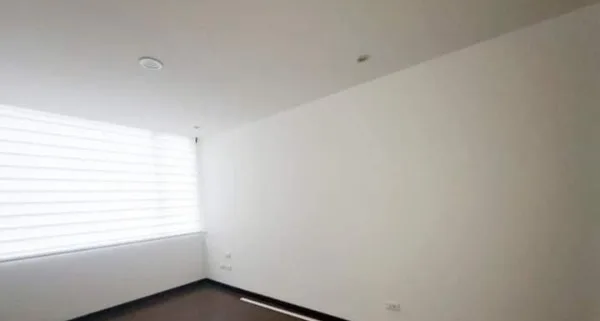Odebrecht scandal rearranges the political landscape in Ecuador and Latin America
By Esteban Cordero Balarezo
Odebrecht. It is a corporate name well-known in many parts of the world in connection with large-scale construction projects. In Latin America and the Caribbean, it is a name associated with some of the largest public infrastructure projects in the region’s history.
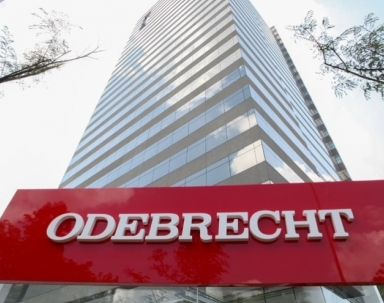 Today it is also a name that is inextricably linked to corruption.
Today it is also a name that is inextricably linked to corruption.
Odebrecht S.A. is a Brazilian conglomerate with holdings not only in construction, but in the petrochemical engineering, defense, and biofuels sectors as well. After decades of operation, the company has business operations in 26 countries and in 2015 reported $48.5 billion in gross revenues, double those of 2008.
Operation Car Wash: First signs of trouble
Things began to unravel for Odebrecht with “Operation Car Wash,” a criminal investigation initiated in 2014 by the Federal Police of Brazil. By 2015, investigators had discovered that bribes had been paid by the company to the managers of the state oil-owned company, Petrobras, in return for government contracts.
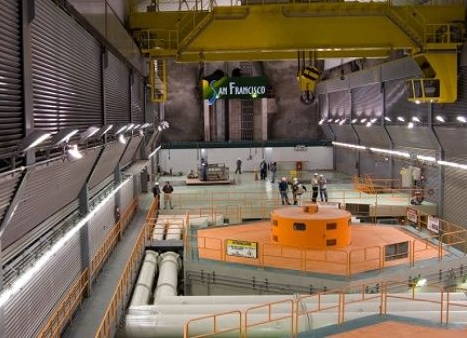
Missed deadlines on construction of the San Francisco hydro electric plant in Ecuador resulted in Odebrecht being expelled from the country for two years.
Working with U.S. and Swiss authorities, the investigation led to criminal charges of fraud and corruption against executives at the highest levels of Petrobras. Since then, as many other bribery cases emerged, Odebrecht has agreed to pay $3.5 billion to settle corruption charges based on documented evidence of hundreds of millions of dollars in payouts to government officials in 12 Latin American and African countries. The U.S. Department of Justice has published a list of the governments involved in the scandal and the amount of bribes paid by Odebrecht. According to the list, corrupt officials in Ecuador received $33.5 million although prosecutors say the amount may be far higher.
Odebrecht’s scheme was systematic, with the company starting to make illegal payouts in 2001 to win construction contracts. By 2006, the company had established a separate department, the Division of Structured Operations, to pay bribes to government officials in return for lucrative contracts.The department’s budget was kept off the official books.
The political fallout
The consequences of the scandal have been catastrophic and widespread, beginning with the removal, based in part on the Petrobras affair, of Brazilian President Dilma Rousseff last year, and the sentencing of ex-president Luiz Lula da Silva and Odebrecht CEO Marcelo Odebrecht, among others. The fallout continues in other countries where the company has had dealings.
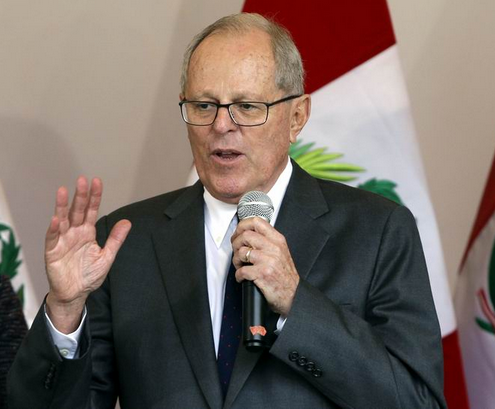
Peru President Pablo Kuczynski narrowly escaped impeachment in December.
Attorney generals have filed indictments in Peru, Argentina, Colombia, Mexico, Dominican Republic, as well as in Ecuador. Recently in Peru, President Pablo Kuczynski narrowly escaped impeachment over his past dealings with Odebrecht, while in Colombia, Nobel Prize-winning president Juan Manuel Santos and several former ministers have been called to testify before the Supreme Court about bribes exceeding $27 million. The investigation shows that Odebrecht was a contributor to Santos’ election campaigns in 2010 and 2014.
Odebrecht in Ecuador
Odebrecht’s history in Ecuador dates back to 1987, starting with the government of Leon Febres Cordero and continuing through the Rafael Correa’s presidency. Almost every governments during that period contracted with Odebrecht for major state projects.
There was a break in Ecuador’s relationship with Odebrecht in 2008, when the the government accused the company of breach of contract in the construction of the San Francisco Hydroelectric Plant in Tungurahua Province. In the months leading up to the plant’s opening, work had come to a halt when technical problems were detected. Officials decreed a unilateral suspension of all contracts with the company, including for the San Francisco plant and the airport at Tena.

Diana Salazar spearheaded the Odebrecht prosecution in Ecuador.
In a statement issued at the time, Correa said of Odebrecht, “Not only are they leaving the country, I will not rest until I let the world know what damage they have done here.” Ecuador’s attorney general opened a case against the company, demanding $137 million in fines and damages.
With little public notice, the conflict was resolved in 2010 when Odebrecht offered to repair damages to the San Francisco plant in return for the dismissal of the government’s case. The company agreed to pay $20 million in damages, and the case was closed. During corruption trials in 2016 and 2017, there was speculation that bribes were paid by Odebrecht to resolve the conflict although nothing was proven.
After 2010, more Ecuadorian projects were awarded to Odebrecht, including: The Ruta Viva highway and phase 2 of the Metro of Quito; Repairs to the Pucara Hydro Plant; The Daule-Vinces water transfer station; Land-fill for the construction of the Refineria del Pacifico (Refinery of the Pacific); The Manduriacu hydroelectric plant; and the Pascuales-Cuenca petroleum pipeline. In total, cost of the projects came to more than $1.2 billion dollars.
U.S. Department of Justice breaks the case open
Unknown to Ecuador and other Latin American countries, the U.S. Department of Justice had been investigating Odebrecht’s financial dealings since 2015 and in 2016 they released their findings. Much of the bribery money, it turned out, was laundered through U.S. banks. Among the bombshells was a statement by an Odebrecht official admitting that the company had paid bribes to Ecuadorian officials totaling $33.5 million between 2007 and 2016. The company’s payoff were contracts with the government that reaped profits of over $116 million.
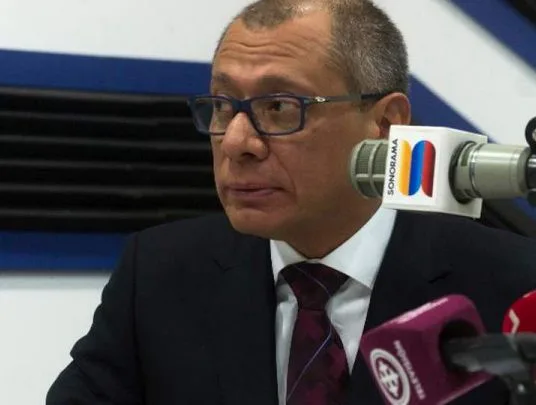
Former Vice President Jorge Glas was convicted as a result of the Odebrecht scandal in Ecuador
The attorney general of Ecuador at the time, Galo Chiriboga, opened an investigation into the Odebrecht scandal at the end of 2015. In April of 2017, ex-minister of Electricity Alecksey Mosquera and Marcelo Endara were the first suspects arrested on corruption charges. A former lawyer for Odebrecht, Rodrigo Tacla, gave evidence that his client had paid Mosquera and Ednara $1 million each to speed up a bureaucratic process for one of the hydroelectric projects.
In May of 2017, new Ecuador attorney general Carlos Baca took over the case. Appointed by President Lenin Moreno, Baca first traveled to Brazil to gather information. On June 1, the Brazilian prosecutor’s office opened its Odebrecht files to Baca, providing him testimony and audio tapes from the Odebrecht officials responsible for paying bribes. Brazil also opened its files to seven other countries.
The fall of Vice President Jorge Glas
With the new information, heads started to roll in Ecuador. By June 2, raids were conducted in Quito, Guayaquil and Latacunga. In the Guayaquil raids, the uncle of now ex-vice president Jorge Glas, Ricardo Rivera, was taken into custody.
Glas, who was vice-president in Rafael Correa’s final term and continued in the role under Moreno, was arrested and jailed October 4. Stripped of his duties, Glas was found guilty of illicit association along with his uncle and six others on December 13 and was sentenced to six years in prison. A three-judge panel agreed with prosecutors that he had received $14 million in bribes through Rivera. To date, Glas is the highest ranking public official of any government to be convicted and sentenced based solely on Odebrecht evidence.
Odebrecht has been permanently banned from doing business in Ecuador, with all government contracts with the company cancelled. The attorney general’s office continues its investigation with a focus on recovering bribery payments.
The full extent of the damage that Odebrecht caused in Latin America is yet to be determined as more information comes to light about the company’s illegal activities. What is known is that the economic, social and environmental damage has been extreme and the impact will be felt for years to come.









